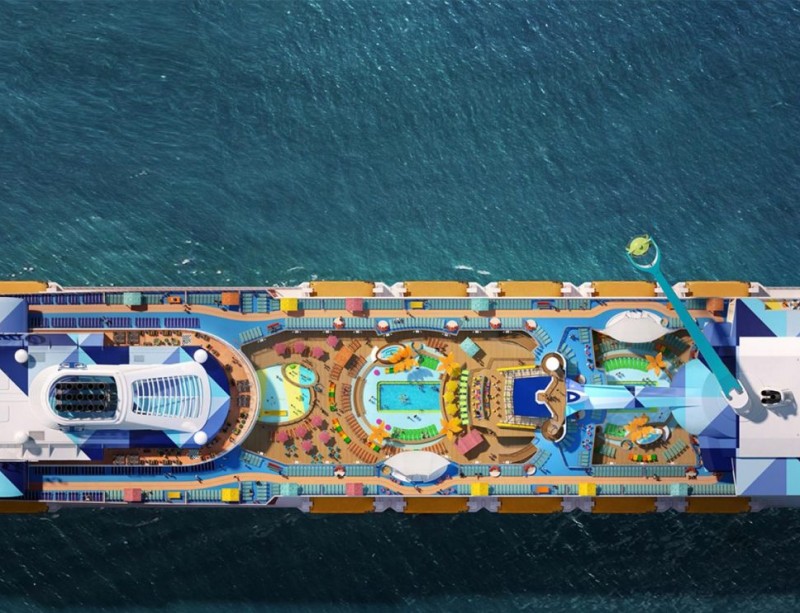Full Ship Charter FAQs
Full Ship Charter FAQs
Below are the answers to some frequently asked questions.
• Freedom to Customize & Greater Control
◊ Complete customization of your program and itinerary
◊ Unlimited branding opportunities
• Camaraderie & Exclusivity — Everyone sailing is part of your same group
• Prestige — People feel honored and excited when they board a privately chartered ship
• Undivided Attention — Entire crew devote 100% attention & resources to your program
• Value — Save up to 30% compared to land-based events or meetings —
Complimentary use of all A/ V equipment
Corporate: A company that purchases all staterooms for a meeting or incentive program and provides
those staterooms at no charge to its employees, customers or vendors.
• Meetings & Conventions
• Product Launches
• Incentive Programs
• Tradeshows
• Corporate Anniversaries
• Consumer Promotions
• Educational Seminars & Recertifications
Affinity or Promotional (Re-Sale): An organization that charters the ship with the intent to re-sell all staterooms to
consumers sharing a common interest (aka “theme cruise”). The client typically creates unique onboard programming,
charging a premium for the exclusive opportunity and unique experience which isn’t available on a standard retail
sailing. The majority (Re-Sale) programs are:
• Music & Entertainment
• Lifestyle & Religious
• Extremely strong affinity or cult-like following with ability to market and reach intended audience
• Entertainment or charitable component
• Previous success with executing similar large land events or festivals on land
• Proper financing
• Fulfillment capabilities
Royal Caribbean usually won’t consider Full Ship Charter for requests submitted within 12 months of
departure or even further out if the requested sail date is already booked above a certain capacity threshold.
Recommend chartering at least 13 to 16+ months out to allow adequate time for a charter client to promote
their cruise and fill space.
A charter rate is based on the ship’s full double occupancy regardless of how many people sail. Prepaid
gratuities, taxes & fees, and incremental fuel costs if (any) are also part of the guaranteed amount due.
Additional fees for triple and quad berths must also be paid to the Cruise Line if the charter sails above the
ship’s full double occupancy.
More accurate pricing may be provided based on an exact ship, sail date, itinerary and level of customization.

Charter pricing is most attractive during non-peak seasons, i.e., September, October, early December and/or
January. The most expensive months are May through August. Products in Alaska, Bermuda or Europe may
exceed the ranges outlined above.
To maximize value, the number of participants should be close to the double occupancy capacity of the ship under consideration. Should the chartered sailing fall below full double occupancy level, the client may be responsible for per person Onboard Revenue fees. Regardless of occupancy, the client may be responsible for meeting or exceeding a certain Onboard Revenue expectation.
An onboard revenue guarantee is a component of chartering with Royal Caribbean. To minimize risk exposure
of not being able to meet/exceed the ship’s onboard revenue guarantee, it is best for the number of sailing
guests to be as close to or exceed a ship’s double occupancy capacity. If the onboard revenue target is not
met during the charter, Purchaser is responsible for paying the shortfall.
Any requested change to standard operation may impact the charter rate or result in incremental fees.
Examples are:
• Requests to close any revenue center or revenue generating activity (e.g., casino, bars, art auctions, bingo, etc.)
• Requests to significantly change menu offerings or re-printing of menus
• Custom itinerary requests which impact fuel, port fees, security, tender operations, etc. and/or changes to
contracted itinerary requested post-contract; this also applies to “floating hotel” request
• Food and/or Beverage events not offered on a non-chartered sailing, including personal brands
• Customized entertainment requests
• Special Services such as Fireworks, Drones, Flyovers, Banners, Decorations, etc
Option 1: Staggered Payments with An Irrevocable Stand-By Letter of Credit in place at contract signing
• 10% of charter rate and pre-paid gratuities at contract signing
• 30% of charter rate and pre-paid gratuities at 7 months prior to sailing
• 30% of charter rate and pre-paid gratuities at 5 months prior to sailing
• 30% of charter rate and pre-paid gratuities at 3 months prior to sailing
Option 2: Payment in Full at Contract Signing – No Letter of Credit
• 100% of charter rate and pre-paid gratuities at contract signing
• Interest credit earned to be provided as a shipboard credit on the chartered sailing
• Payment is non-refundable
Payment for per person taxes and fees, expected OBR penalties (if applicable), requested amenities and
other miscellaneous fees relating to customization will be required 30 days prior to sailing and/or prior to the
release of documents.
Requests for alternate custom payment arrangements may be considered if a charter client has previous and
verifiable history of doing similar successful events either on land or at sea and must be discussed with the
Charter Sales Manager. All payments to be made in U.S. Dollars
An Irrevocable Stand-By Letter of Credit is issued by the client’s bank (must have an A rating or higher) to
guarantee funds will be paid to the Cruise Line. The bank a charter client intends to use must be pre-approved
by Royal Caribbean International prior to issue.
As the beneficiary, Royal Caribbean International can draw upon the LOC to collect payment in the case of
default. The LOC is required at contract signing and is held for 60 days post-sailing to ensure all balances are
paid and no damages occurred to the ship during the charter.
A Letter of Credit is required for Full Ship charters because Royal Caribbean International loses all ability to
market and sell the chartered sailing once an Agreement is signed. Should the client default on the Agreement,
our ability to refill space is limited, which would result in a significant financial loss
No. There is no cancellation or attrition with a charter agreement. Nor can a charter reduce to a group if a
charter client is not able to fill all space.
No. The client must have the ability to handle or work though a travel partner to market the program, answer
questions, accept payment (if applicable), assign staterooms, etc.
Not necessarily — although relatable experience of some kind is preferred:
• A history of chartering ships of a similar size with us or our competitors
• A history of sailing as a large group with growth from year to year
• A history of promoting and selling large land programs on a similar scale
The charter client determines pricing for a Re-Sale Full Ship Charter program. Due to anti-trust regulations,
Royal Caribbean International cannot legally advise a client how to price staterooms on a chartered sailing.
Current retail pricing may be used as a guide but it is only a snapshot of the pricing on a particular day.
This pricing would never apply to the entire ship nor would it remain constant throughout the booking
life cycle for the sailing.
No. The client is responsible for the marketing program for the chartered sailing. Tools can be provided to
assist with the effort to create a client’s own collateral material, video content, or website images.
FOR NORTH AMERICA BASED CHARTER AGENTS/CLIENTS
Colleen Hagen • Sr. Account Executive • chagen@rccl.com
FOR INTERNATIONAL BASED CHARTER AGENTS/CLIENTS
Clem Galindo • International Sales Manager • cgalindo@rccl.com

